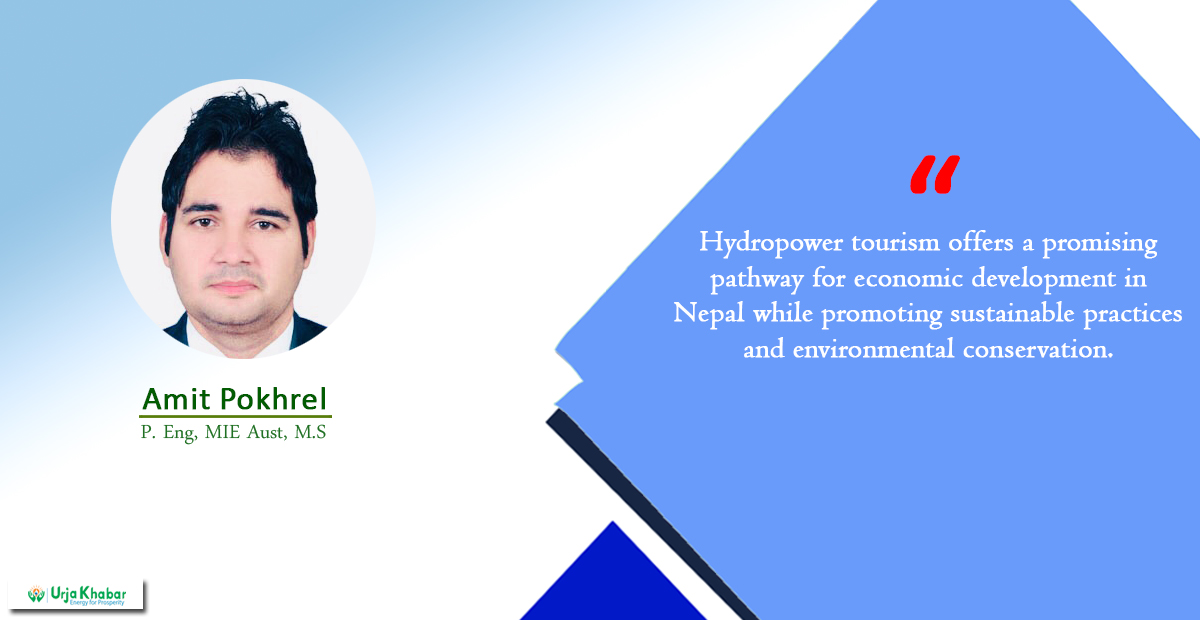
In recent years, Nepal has been making significant strides in harnessing its abundant hydropower resources for both energy production and tourism development. With its mountainous terrain and numerous rivers and waterfalls, Nepal boasts immense potential for hydropower generation, making it a prime destination for sustainable tourism initiatives.
Hydropower tourism has become a growing trend in recent years as communities around the world look for sustainable ways to develop their economies. This unique form of tourism harnesses the power of flowing water to create energy, while also providing visitors with a memorable and educational experience. In this article, I will explore the benefits of hydropower tourism as an economic development zone, and how it can be a sustainable approach for communities looking to increase their revenue and protect their natural resources.

Harnessing Hydropower for Tourism Development
Nepal is home to some of the world's highest mountains, including Mount Everest, as well as a network of rivers that provide ample opportunities for hydropower generation. The country has been investing heavily in hydropower projects in recent years to meet its growing energy needs and reduce its reliance on imported fossil fuels. These hydropower projects not only provide clean and renewable energy but also create opportunities for tourism development.

Hydropower tourism involves developing tourism infrastructure around hydropower projects, such as visitor centers, viewing platforms, hiking trails, and adventure sports facilities. By highlighting the natural beauty and engineering feats of these projects, hydropower tourism can attract tourists interested in sustainable travel experiences. Furthermore, by integrating local communities into the tourism development process, hydropower tourism can create economic opportunities for residents while preserving their cultural heritage.
One of the key challenges of hydropower tourism is striking a balance between economic development and environmental conservation. While hydropower projects can generate revenue and create jobs, they can also have negative impacts on the environment, such as habitat destruction and water pollution. Therefore, it is crucial for Nepal to adopt sustainable practices in the development of hydropower projects to minimize their environmental footprint and ensure the long-term viability of its tourism industry.
In addition, Public-private partnerships also play a vital role in the development of hydropower tourism in Nepal. By collaborating with private sector companies, the government can leverage their expertise and resources to support the sustainable development of hydropower projects. These partnerships can also help attract foreign investment and technical know-how to Nepal, enabling the country to tap into international markets and expand its tourism industry.
Nepal has the potential to become a global leader in hydropower tourism by showcasing its sustainable practices and unique natural attractions. By participating in international events and marketing campaigns, Nepal can attract eco-conscious tourists from around the world who are seeking authentic and environmentally friendly travel experiences. Moreover, by partnering with other countries with similar interests in hydropower tourism, Nepal can exchange best practices and promote cross-border tourism initiatives.
Sustainable Energy Generation
Hydropower tourism utilizes the natural flow of rivers and streams to generate electricity, making it a clean and renewable source of energy. By harnessing the power of water, communities can reduce their reliance on fossil fuels and decrease their carbon footprint.
Economic Development Opportunities
Developing hydropower tourism attractions can create jobs and stimulate local economies. From construction workers to tour guides, there are a variety of employment opportunities that come with the development of hydropower sites. Additionally, the influx of tourists can bring in revenue for local businesses and government agencies.
Educational and Recreational Benefits
Hydropower tourism offers visitors the opportunity to learn about the importance of water conservation and renewable energy. Guided tours of hydropower plants and educational exhibits can help raise awareness about environmental issues and inspire visitors to take action in their own communities. Additionally, recreational activities such as fishing, rafting, and hiking can attract tourists looking for outdoor adventures.
Environmental Considerations
When developing hydropower tourism sites, it is crucial to prioritize environmental sustainability. Conducting environmental impact assessments, implementing eco-friendly practices, and preserving the natural beauty of the surrounding area are essential steps in creating a sustainable tourism destination.
Community Engagement
Involving local communities in the planning and development of hydropower tourism projects is key to ensuring their long-term success. By consulting with residents, businesses, and indigenous groups, developers can address concerns, build trust, and create mutually beneficial partnerships that support the local economy.
Promotion of Responsible Tourism
Encouraging responsible tourism practices, such as minimizing waste, conserving water, and supporting local businesses, can help mitigate the negative impacts of tourism on the environment and local communities. By educating visitors about the importance of sustainability, we can promote a culture of respect for the natural world.
Hydropower tourism offers a promising pathway for economic development in Nepal while promoting sustainable practices and environmental conservation. By harnessing its abundant hydropower resources and investing in tourism infrastructure, Nepal can create new opportunities for local communities and attract tourists from around the world. As Nepal continues to develop its hydropower projects, it is essential for the government and private sector to work together to ensure that this innovative approach benefits both the economy and the environment. With the right strategies and partnerships in place, hydropower tourism can become a driving force for sustainable development in Nepal for years to come. Hydropower tourism also has the potential to be a sustainable and profitable economic development zone for communities around the world. By harnessing the power of flowing water, creating jobs, and educating visitors about environmental conservation, we can create a more environmentally friendly and economically viable future.
Let's work together to support the growth of hydropower tourism as a sustainable approach to economic development.
Reference
- sustainability-12-06312.pdf (iiasa.ac.at)
- cover Electricity magazine 2073.ai_.pdf (climatenepal.org.np)
- Microsoft Word - Hydro Article for review 8.deepak.DOC (nrb.org.np)
- Creating Waves to Achieve Sustainable Hydropower in Nepal (ifc.org)
- (PDF) Hydropower Tourism in Kaligandaki and the perceptions of people towards it (researchgate.net)
- Hydropower Development and Economic Growth in Nepal | Green Policy Platform
